October 2017 National eResearch Newsletter
Welcome to the October AeRO eResearch Newsletter
From the AeRO CEO
Exciting times for AeRO, a new CEO started this month: Sam Moskwa, from CSIRO. Sam will take AeRO into its next phase, growing the organisation and its services for the members and wider community. With the planning for a national research data cloud framework slowly emerging, AeRO is well placed to help the formulation of a national strategy. AeRO has also worked very hard to make the eResearch Australasia conference even bigger and better this year, and feedback is very welcome – Sam will be there next week, and looks forward to meeting everyone!
Dr Markus Buchhorn, Outgoing AeRO CEO.
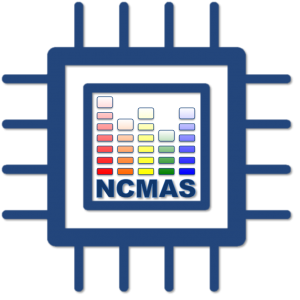 |
NCMAS Applications at NCI/Pawsey/MASSIVE/Flashlite Close 20-Oct
Applications for the National Computational Merit Allocation Scheme (NCMAS) close on the 20th of October. NCMAS provides researchers with access to high-performance computing resources from four leading facilities around Australia: the National Computational Infrastructure, Pawsey Supercomputing Centre, MASSIVE and Flashlite. Applicants from any of Australia’s research universities are eligible to receive support through NCMAS. Click here to find out more and to apply: https://ncmas.nci.org.au/2018/. |
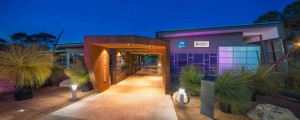 |
Come See Pawsey, 25-Oct!
On the last Wednesday of every month, the Pawsey Supercomputing Centre opens its doors to the public for tours inside the centre and its whitespace. The Centre in Kensington houses some of the most powerful supercomputers in the Southern Hemisphere! This interactive and informative tour is a great opportunity to learn how supercomputing is enabling researchers across the nation do ground breaking work. The Pawsey Supercomputer Tours are FREE to attend however, registrations are essential. Please register here: https://www.pawsey.org.au/pawsey-monthly-tours-registration-form/. Our next tour will be on Wednesday 25 October at 4pm. |
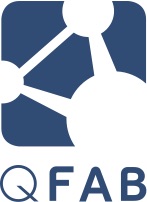 |
QFAB Biostatistics Bootcamp, 23-26 October 2017
QFAB will host four workshops in October at the University of Queensland to help researchers get to grips with R, a powerful, popular and free statistical and graphical programming language. The workshops include an introduction to R, hypothesis testing, exploring and predicting using linear regression, and longitudinal and mixed-model analysis. All researchers are welcome to attend and can sign up for one or more of these workshops. Visit the QFAB website for more information at http://www.qfab.org/training. |
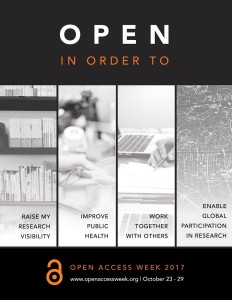 |
Open Access Week is October 23-29
The theme this year is “Open in order to…”. There are events all over Australia, including a webinar with Heather Joseph from SPARC US https://www.eventbrite.com.au/e/oa-week-2017-webinar-presented-by-sparcs-heather-joseph-tickets-38648045344 on October 27 and a tweetchat on October 26 – all listed here at the AOASG website at https://aoasg.org.au/open-access-week-2017/. |
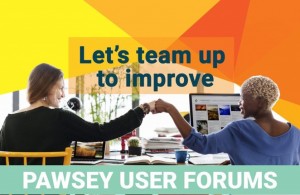 |
Pawsey User Forum 30-Oct
The Pawsey Supercomputing Centre is pleased to announce its first User Forum in NSW. Hosted by UNSW and IMDC’s Sean Smith, Pawsey staff want to discuss your experiences using Pawsey services, and to hear from you to find out what we are doing well and where we can improve. Do not wait until our end of year survey, join us at UNSW and have your say today! To register or provide feedback (if you can’t attend), click here: https://www.pawsey.org.au/sydney-user-forum/ |
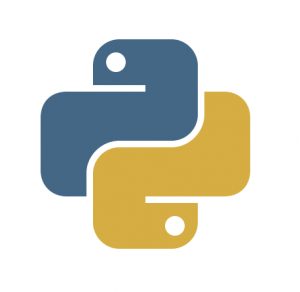 |
Advanced Scientific Programming in Python: Apply by 31-Oct
The first Advanced Scientific Programming in Python workshop in the Asia Pacific region will be held in Melbourne, 14-21 Jan 2018: apply by 31 Oct 2017. Designed for post-grads and post-docs from all areas of science, topics include git, open source software using github, testing, debugging, profiling, advanced NumPy, Cython, and data visualisation. It will be held at the Melbourne Brain Centre at the University of Melbourne and it is free (with students responsible for travel, accommodation, and meals). Only 30 student placements are available and the competition for places will be high. Full details at https://www.melbournebioinformatics.org.au/news/apply-aspp-2018/. |
 |
Health and Medical Data Webinars in November
Two new webinars have been arranged by the Australian National Data Service (ANDS) to discuss medical and health data, subsequent to previous and popular webinars on the topic held in May.
These short webinars aim to support better management and publication of health and medical data. They are open to everybody and free of charge (but please register to attend). Find out more and register at http://www.ands.org.au/working-with-data/sensitive-data/medical-and-health/webinars-health-and-medical. |
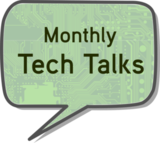 |
November Tech Talk: Scientific Workflow Systems (3 Nov)
The next Monthly Tech Talk, organised by the ANDS/Nectar/RDS partnership, is on Friday 3 November (3pm AEST) on the topic of ‘Scientific Workflow Systems’. Scientific workflows consist of the multiple computational steps to access and process data, and often run on distributed computing platforms. Details of speakers and venues will be advised in due course. Tech Talks are live-linked discussion events at various venues around Australia. The discussion is followed by networking with refreshments. Please register to attend. See the Monthly Tech Talk Meetup page for more details at https://www.meetup.com/monthlytechtalk. |
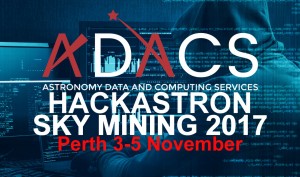 |
“Sky Mining” Hackastron, Perth, 3rd – 5th November 2017
Please join us for the inaugural Astronomy Data and Computing Services (ADACS) Hackastron – “Sky Mining” – in Perth, 3rd-5th November 2017, funded under the Astronomy NCRIS Program via Astronomy Australia Ltd (AAL). During Sky Mining, scientists, coders, technologists and enthusiasts from the university sector and industry will come together for 48 hours to access astronomy data to explore challenges Australian astronomers face daily. For further information and registration go to: https://www.eventbrite.com.au/e/hackastron-sky-mining-2017-tickets-37934847149. If you are an astronomer looking to submit a challenge please complete the form here: https://adacs.org.au/index.php/2017/09/07/challenge-proposals-adacs-hackastron-sky-mining-perth-3-5-november-2017/. |
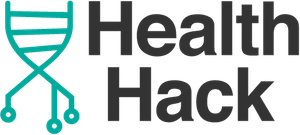 |
Health Hack, 3–5 November 2017
Health Hack is back! The free, national event will take place over the weekend of 3–5 November in Brisbane, Sydney and Melbourne. It will bring researchers, students and healthcare professionals together with other scientists, software developers, educators, engineers and designers to create innovative solutions to interesting problems. Health Hack is currently seeking participants, volunteers, sponsors, and researchers or health professionals with problems to solve. Everyone is welcome to participate, including those from non-STEM fields. As the Health Hack website says: “Get involved. It’ll be fun. Promise.” See https://www.healthhack.com.au/. |
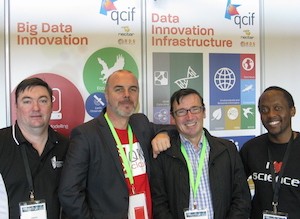 |
QCIF at eResearch Australasia 2017!
QCIF will have an exhibition booth at the eResearch Australasia conference, 18–20 October, at the Brisbane Convention and Exhibition Centre – come and say hello! Talk to the team about how QCIF can help your research, and your institution’s research projects. Check out the full list of QCIF activities at the conference: https://www.qcif.edu.au/index.php/events/232-eresearch-australasia-2017. |
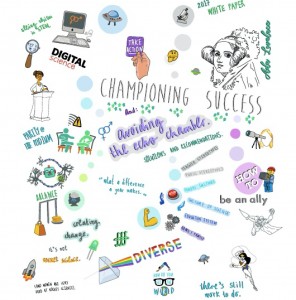 |
Lovelace Day: Championing the Success of Women in STEM
To mark Ada Lovelace Day, the annual celebration that promotes women working in Science, Technology, Engineering, and Maths (STEM), Digital Science have issued a new report. “Championing the Success of Women in Science, Technology, Engineering, Maths, and Medicine” includes a collection of think pieces around current issues faced by women in STEM authored by industry leaders. The report explores areas of gender inequality and potential causes of this inequality, offering up a collection of solutions. |
 |
Government Funds Australian Cyber Security CRC
The Australian Government has announced funding for a Cyber Security Cooperative Research Centre (CyberCRC). The CRC will be a government/ industry/academic collaboration, bringing together 24 participants to play a critical role in building Australia’s cyber security expertise and capability in cyber security research, development and commercialization. The CyberCRC aims to make a significant contribution to the realisation of the Government’s national Cyber Security Strategy, announced last February. AARNet is one of eight inaugural Industry members of the CyberCRC. CRC members also include seven universities and research institutions and nine government agencies. https://news.aarnet.edu.au/government-funds-cyber-security-cooperative-research-centre/. |
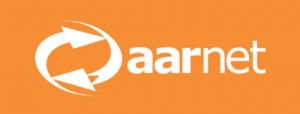 |
AARNet Delivers 400Gbps for GLIF 2017 Workshop
Network engineers working on advanced academic and research networks around the world gathered in Sydney recently for the annual international GLIF (Global Lambda Integrated Facility) Workshop. Demonstrations were a key part of the Workshop. AARNet engineers collaborated with researchers at scientific organizations and research and education networks in Europe and the United States to run live long-distance high-speed big data transfer experiments to the venue floor. “Providing researchers with global access to data transfers in real time like we’ve never seen before will help to fast-track world discoveries,” said AARNet CEO Chris Hancock. https://news.aarnet.edu.au/aarnet-delivers-400gbps-for-high-tech-networking-demo-fest/. |
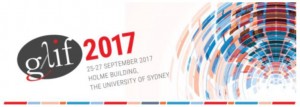 |
Highlights of GLIF 2017 Down Under
The 17th Annual Global LambaGrid Workshop was held on 25-27 September 2017 at the University of Sydney and was hosted by AARNet. 70 participants from 16 countries came together to hear about the recent developments in Australia and the Pacific region that are supporting high-bandwidth research applications, and to discuss how global R&E networks should evolve over the next 5 years. Keynotes included Dr Shaun Amy (CSIRO) on the data challenges posed by the SKA, Garret Yoshimi (University of Hawaii) on R&E networking in the Pacific, and more on other applications taking advantage of the GLIF infrastructure. https://news.aarnet.edu.au/highlights-from-glif2017-workshop-down-under/. |
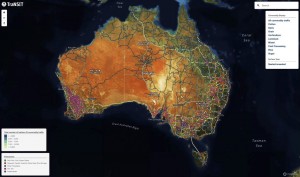 |
TraNSIT – Visualising the Australian Agriculture Commodity Network
CSIRO’s Transport Network Strategic Investment Tool analyses transport and logistics options for agriculture to identify potential cost savings. The tool currently accommodates 142 million tonnes of agriculture transport over 5 million vehicle movements per annual. Scientific Computing at CSIRO eResearch collaborated with TraNSIT to develop an interactive map to see the network. The visualisation provides a birds-eye overview to zoom, filter, and drill down to individual roads and enterprises. This tool is nearly at stage 1. Future stages will provide access for policy makers to modify the road network, perform network analysis, and more. See: https://www.csiro.au/en/Research/LWF/Areas/Landscape-management/Livestock-logistics/TRANSIT |
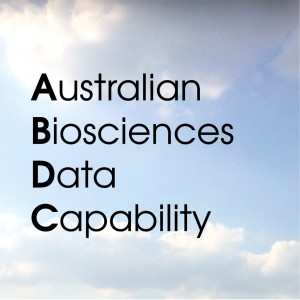 |
What Australian Biosciences Data Capability is needed by our Research Community?
An extensive consultation process into this question is currently being led by Rhys Francis (author, NCRIS eResearch investment/super science plans (2007-10) and the draft eResearch Framework (2013-15)) and Andrew Lonie (Director, EMBL-ABR & Melbourne Bioinformatics). Their aim is to (i) determine exactly what infrastructure and activity is needed and, (ii) propose relevant funding and administrative models. Over the coming months, community meetings are being held across the country. Concurrently, a National Reference Group of high profile domain-specific researchers has been convened to provide guidance and advocacy. Comments, input and questions are all welcome. See https://www.melbournebioinformatics.org.au/projects-blog/oct-update/. |
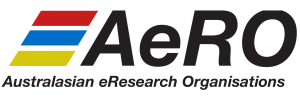 |
New AeRO Executive Committee Elected
Elections were held recently for the AeRO Executive Committee, with the following new Committee being elected:
Profiles of the new Co-Chairs can be seen at http://aero.edu.au/new_ceo_and_co_chairs/. AeRO extends its thanks to Mr Rob Cook (outgoing Chair) and Dr Markus Buchhorn (outgoing CEO) for their outstanding commitment and service to AeRO, its members and the eResearch community over a long period of time. |
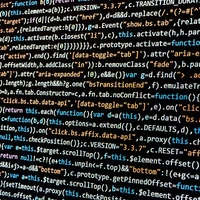 |
New Research Software Engineers Community Group
Inspired by the success of the UK Research Software Engineer Association, there are active plans to start an Australian Chapter of the RSE Association. Together with international bodies and support from national organisations including ANDS, Nectar and RDS, the aim is to campaign for the recognition and adoption of the RSE role within academia, alongside the need for appropriate reward and career opportunities for RSEs. This will include regular events to allow RSEs to meet, exchange knowledge and collaborate. You can express your interest through the survey at https://ahassan.typeform.com/to/SgT13z or by contacting Manodeep Sinha at m.sinha@swin.edu.au. |
 |
AAF Connects to eduGAIN to Improve International Collaboration
The Australian Access Federation (AAF) recently completed a project funded by RDS (Research Data Services) that paves the way for Australian researchers to collaborate with international partners. The AAF is now connected to eduGAIN (Education Global Authentication Infrastructure), which will enable researchers to collaborate with their colleagues and securely access applications, tools and datasets in other countries. When researchers login via the AAF they will have access to over 160 additional international research services (eg CERN and LIGO), from more than 40 identity federations. Find out how to connect to eduGAIN at https://aaf.edu.au/edugain/resources.html or contact support@aaf.edu.au. |
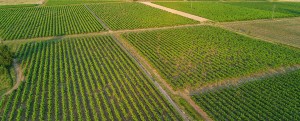 |
Upgrading the World’s Most Important Protein
The world’s most important protein is getting an upgrade. Despite it being the most abundant protein in the world, we are still getting to the roots of how Rubisco, the protein at the heart of photosynthesis, works. Read more here: http://nci.org.au/research/upgrading-worlds-important-protein/ |
 |
eResearch NZ Conference Feb-2018
Join us this summer at the 9th Annual eResearch NZ Conference, to be held in Queenstown, the adventure capital of the world, from 12-14 February 2018. The program will be centred around the theme “The eResearch Outlook: Impact, Sustainability and Excellence” and will provide the opportunity to hear from experts on a variety of topics that appeal to our broad and diverse community. Submissions are open for another 3 week only – and must be received by 5 November 2017. Find out how you can participate by visiting http://eresearch2018.org.nz/. We look forward to seeing you there! |
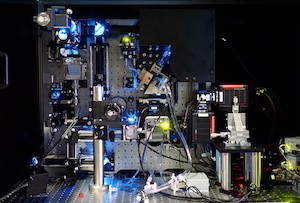 |
QCIF and RCC Support Big Imaging Data
are leading the development of dedicated computing and storage infrastructure to handle the big data volumes expected to be generated by a revolutionary new microscope being installed at UQ’s Institute for Molecular Bioscience (IMB). The Lattice Light Sheet Microscope, a new modality for 4D imaging of live biological specimens ranging from individual molecules to small organisms, is expected to generate up to 7 TBs of imaging data per day. Read more at: https://www.qcif.edu.au/index.php/news/332-qcif-supports-big-imaging-data. |
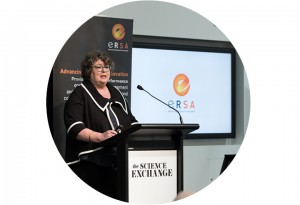 |
Innovation Symposium: AI Beyond the Myths
Artificial Intelligence (AI) was the topic on everyone’s minds at eRSA’s second Innovation Symposium as part of the statewide Open State festival. Subtitled “AI Beyond the Myths”, this year’s Innovation Symposium drew a large crowd to the Science Exchange interested in how AI is potentially going to shape the future of South Australia. Read more at: https://www.ersa.edu.au/recap-2017-innovation-symposium-ai-beyond-myths/. |
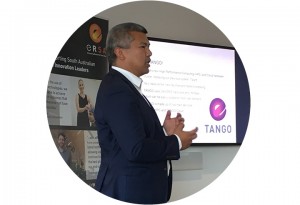 |
TANGO Demo Sessions
eRSA’s Research Engagement Specialists (RES) have been busy demonstrating the new TANGO HPC and Cloud infrastructure with various South Australian universities throughout September. The RES team – Joey, Alexis and Quang – visited six campuses across University of Adelaide, University of South Australia, and Flinders University, reaching over 60 people in an intimate workshop setting. Read more at: https://www.ersa.edu.au/recap-tango-demo-sessions/. |
Contributions
This newsletter is based on contributions provided by members of the eResearch community, and draws on news articles and newsletters published across the sector. The Newsletter is published around the 16th of each month. Please send any contributions (max. 150 words, plus a link and image) or pointers to any other relevant articles or newsletters to editor@aero.edu.au
Archives of these Newsletters are held at http://aero.edu.au/newsletters/.
Click HERE to add yourself to the eResearch Mailing List.
Thanks,
—AeRO Newsletter Editor

